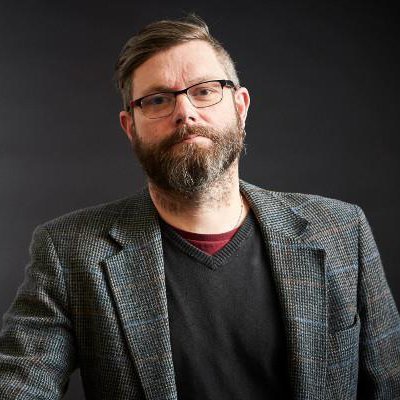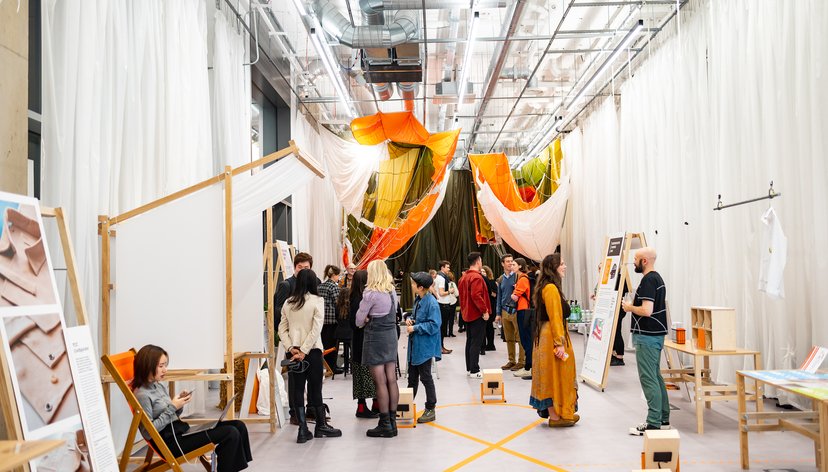
Professor Phil Purnell
- Visiting Professor
-
Centre for Materials Science & Culture
Professor Phil Purnell is Visiting Professor at the Centre for Materials Science & Culture.
Phil has developed new methods that enable the analysis of the lifecycle and the resource flows of the materials developed in the Sustainable Future Materials theme. His expertise in mass flow analysis establishes the current use of resources and applies a whole lifecycle approach to identify their social, environmental, economic and technical impacts.
Alongside his role at the RCA, Phil is Director of the University of Leeds Cities Theme, where he leads interdisciplinary research into sustainable cities and resilient infrastructure. The work of 150 researchers working under this theme includes e.g. robots that repair infrastructure, low-carbon action plans for cities, and alternative finance mechanisms.
Phil's personal research portfolio is similarly interdisciplinary. He is Principal Investigator on £5.6m and Co-Investigator on £5.1m UKRI grants funded by EPSRC, ESRC and NERC. He also convened the £7m NERC Resource Recovery from Waste programme. From a background in concrete technology (the use of fibre/textile reinforcement in cement composites) the programme has diversified into resource management and the circular economy, medical biomaterials, 3D printing and the carbon footprint of structural materials.
Key details
School, Centre or Area
More information
Research interests
Phil is interested in the flow of materials through the economy, in particular those which are used in large quantities (construction materials), have particular environmental impacts related to their end-of-life (e.g. textiles, household waste), are classed as ‘critical materials’ (e.g. rare-earth elements), waste management infrastructure and the circular economy.
Practice
Phil aims to make materials – and how we design with and use them – less damaging to our environment, since materials production accounts for 40 per cent of CO2 emissions. Phil has worked with artists on many projects. As Principal Investigator for a Leverhulme Artist in Residence grant with Victoria Ferrand Scott MRSS, Phil and his team codeveloped new concrete materials and processes that imbued Scott's 'organic, almost visceral' sculptures with new textures, sizes and morphologies. Phil has also collaborated with sound artists, via the Ruskin Rocks project with Dame Evelyn Glennie and Opera North on the acoustics of rocks and concrete, and the Ways of Hearing programme, exploring 'how we understand and shape the city through a directly sensory engagement with its people, places and spaces'.
Research funding
Full list available here.
Currently active projects as Principal Investigator:
Balancing the impact of City Infrastructure Engineering on Natural systems using Robots (EPSRC, £4.2M) - Our vision of a city where infrastructure is autonomously maintained and dynamically responsive, focused on: securing the health & wellbeing of its citizens; contributing to flourishing and sustainable natural systems in the city; and creating positive economic and societal outlooks. Towards our vision we will tackle the Grand Challenge of: Zero disruption from Streetworks in UK Cities by 2050. Our strongly interdisciplinary team researches: autonomous systems for minimally invasive infrastructure sensing, diagnosis and repair; development of advanced robots for deployment in complex live city environments; and the socio-technical intricacy of the robot - human - natural systems interfaces.
Complex Value Optimisation for Resource Recovery from Waste (C-VORR) (NERC/ESRC/DEFRA £1.4M) - Our modern industrial society produces increasing amounts of waste. Yet many of these wastes might contain useful materials. Often, we simply 'bolt on' a piece of recovery technology to the end of the process, assuming that because we are recovering resources, the environmental impact is automatically good. But many recovery systems have 'hidden' impacts. Collection and recycling of plastic bottles can produce more carbon dioxide and uses more resources than making new bottles; much of our plastic waste is exported and reprocessed by workers in unhealthy conditions paid very poor wages. Until we have a method for weighing up all these factors, poor decisions driven by faith in simplistic ideas such as 'the waste heirarchy' will continue to be made. We will bring together scientists, engineers, mathematicians and economists to help build this method.
Current and recent projects
Phil’s current activity includes advisory roles for DEFRA and the Royal Society (on waste and resources strategy), DfT (on critical materials for electric vehicles) and EPSRC/InnovateUK (co-creating with industry the next round of ISCF funding calls). He has been PI or Co-I on 12 UKRI projects worth over £17m from EPSRC, ESRC and NERC, has published more than 70 journal papers with more than 1,800 citations and a current h-index of 26 (Google Scholar). He is a regular contributor to science and technology print, radio and TV media (e.g. BBC Radio 4 Plastic Fantastic, BBC4 TV Ceramics: How They Work and ITN Pothole Wars) and delivered the IoM3 Mellor Memorial Lecture in 2017.
External collaborations and activities
CEM Fellow, University of Cambridge
